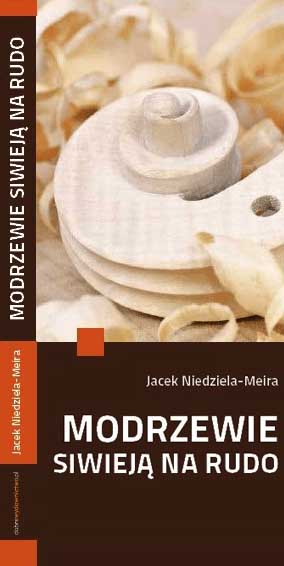To have money, to help your luck is one thing, to remain a gentleman is great art.
Sting is a typical example of a creator whose career shows how much an idea, its realisation, talent and good luck count and how much one has to help himself to attain the goal. We do not live in difficult times. Living together with people has been and always will be difficult. We are able to understand it to a bigger or lesser degree. A success is predominantly a result of rational thinking and consistency in action and not only of an empty luck, which has entered the heart or mind of this or that man.

Sting is a versatile person: a musician, a composer, a singer, an author of lyrics, an actor and a film producer. It is difficult to believe that Gordon Matthew Sumner, as this is the real name and surname of the artist born in Newcastle in 1951, was destined for a big career. The fourth kid of Audrey Cowell and Ernest Sumner (a manager of a dairy) did not have an excellent starting position in his life like children of businessmen or aristocratic houses do. And it was just him, who was able to say after a release of an outstanding record of Zenyatt Mondatt in 1981: „I watch my bank account, it is not mathematics, it is astronomy!!”. A great feeling to a man who wanted to be an artist, though he tried a few other professions.
It is better he did not become a tax adviser, an English philologist or a teacher, though this last profession done in the primary school in Carmlington became a motif of the famous song “Don’t Stand So Close to Me”.
He admitted himself that he saw teachers too eagerly watching pretty students, creating indecent thoughts in their minds and he belonged to that circle as well – what a sincerity!
He wrote many texts of his songs before reaching the world fame and he kept them in his drawer,waited for his time so that we are able to sing them and listen to them on buses, in subways, in the street or in the house. It was the case of the famous song “Roxanne”. Recognizable since the first bars. Mixing the rhythms of tango and reggae resulted in a very catchy composition, hummed even by Eddie Murphy in the film „48 hours”. One can say that “Roxanne” is the recognition signal of the Police group.
Sting recalled after years: It is a fantastic feeling to write a song everyone can whistle. The theme was really controversial for its time of release. How one dares to write about a prostitute? It was an insult to good taste and customs. They exist, but it is as if they did not exist, then how one can raise such issues? – the British press was surprised. BBC kept telling everyone about an indecent text. When an unknown group the Police was at one of their concerts in Paris, Sting saw out of the hotel window young women going to work in the street. He was not surprised with their profession. However, he was surprised with the fact that so beautiful French women looked for a men’s companionship , while it would be more appropriate for „pretty” British women.
The music career of Sting started in 1970, when he commenced to work together with a jazz band called The Newcastle Big Band (he has always been a connoisseur and fan of jazz). Two years later he established his own group called The Last Exit and he recorded with them a single and an unfinished demo tape. A provincial, unpromising and fragile popularity forced him to make important decisions. The first one was a marriage with the Irish actress of the Shakespearean theatre Francis Tomelty and the second one was quitting his post at school and a strong resolution to commit himself fully to the professional music career. But how to do it? A passion toward something does not necessarily translate into being appreciated when one creates something decent and even outstanding. For some time he took unemployment benefits. He finished the first semester of English studies at the University of Coventry and some experience of working in various professions. He moved to London where he lived with his wife and his child together at Francis’ friend whose contacts in the world of advertisement producers he managed to take advantage of to own benefit. At that moment a stroke of luck – in 1976 he met a drummer of the Curved Air group, Steward Copeland, already known as a drummer and composer, the youngest son of a former agent of CIA Miles Copeland and Lorraine Adie – a known archaeologist.
First of all, he managed to convince Sting to move to London, as only there he could be noticed by big recording studios and show business, which decided whether a song would get popular or vanish. Secondly, Steward had an uncommon sense of the market as he was the author of the group’s name – The Police, which started to conquer concert halls and hit lists. The Police. Why? It is simple – this noun is often used in mass-media. Whatever lawlessness occurs, the police intervene and they find out the circumstances, conduct an investigation, hunt, patrol the streets. In other words, whenever the Police appears people will associate it unambiguously. Was it effective? Yes, indeed. They met in London a guitarist from Corsica Henry Padovani and they recorded the first composition with him at the single Fall Out.
Soon later, in June an outstanding guitarist Andy Summers joined them. The Police is the result of circumstances. Summers met earlier Copeland and Sting and they even talked about music and a possibility of playing together, but nothing came out of it. And finally…a coincidence again. One day in 1977 Sting and Copeland were conferring what to do with Padovani, whose music abilities were questionable. Copeland accidentally met Summers in subway and they started to talk seriously about co-operation. Many years later Andy Summers published a book called One train later, because if he had taken a train few minutes later, the Police would have not existed in the today known grouping. The Police acted as a quartet for a short time, and after a while as a trio – when Padovani left (he did not know to play the guitar well, he knew only few guitar chords). This trio was comprised of Sting- the bass guitar, Steward Copeland and the leading guitar Andy Summers.
Was it difficult? No doubt. Sting admitted after years that most of all he did not want to take any loan, because then he would be a slave of the recording company (many artists unfortunately did so). It was the case of the contract with Richard Branson’s Virgin company for the Sting’s compositions copyright. Sting probably knew that business matter very well, it is enough to listen to the song of Pink Floyd Have a Cigar (from the record Wish You Were Here) to understand the mechanism of making young, talented musicians involved in working for big music corporations.
An instinct was crucial as at the beginning of the Police activity Sting met a famous musician Billy Ocean who proposed to him well remunerated co-operation. It must have been a tempting proposal to a musician living out of allowance. Yet he refused. And he was right. Ocean employed several musicians to whom he thanked politely for working together after a few months.
Sometimes it is better to abstain from doing something than to get involved into business which has no future as it is not your own one, but for which you bare your own personal responsibility. Sting always wanted to create this responsibility as he did not want to obey rules marked out by others. And it usually happens that those who set up rules do not observe them. He could not stand such people. Our so called leaders speak, with words They try to jail ya, they subjugate the meak, but it’s a rethoric of failure – he sang at the fourth record Ghost in the Machine in the song Spirits in the Material World.
Roxanne, which we mentioned before, became popular, but according to the censorship it was indecent and it could not achieve immediate success as such. The same was withthe song I Can’t Stand Losing You, because it was perceived as containing motives of suicide threats, which could induce listeners to such a drastic decision in the opinion of the censors. It was when Miles Copeland Jr. appeared, Steward’s brother, who became the manager of the band. Again the right choice. This time the thing was not about the contracts, as the musicians knew them well and they understood them, but about the titles of their records. How to distinguish yourself out of the crowd and to make the titles and songs recognisable immediately? Miles found the method – he proposed to find out meaningless titles, which easily catch people’s attention. This way excellent word hybrids were created such as Outlandos d’Amour or Reggatta de Blanc.These two were the first records – each excellent and perfect in all aspects. Outlandos d’Amour sold well, but it was still not an economic success. Worth noting, it was more successful in the United States than in their home country- Great Britain. But Reggatta de Blanc, although primarily better known in the United States than on the British islands, it was the rain of money. Who does not recall wonderful rhythms and rhymes of Message in a bottle, in which Sting…is Sending Alarm S.O.S. or The Bed’s Too Big Without You, when without You Darling, Everyday’s Just the Same. Reggatta de Blanc was a stellar shoot and as Sting claimed it was polished up in every aspect. The trio met expectations of the public in creating quickly new compositions, in enriching them and in being present in the music industry. In effect, as Sting believes, a new record Zenyatta Mondatta was created in 1980, which the band considered as a kitsch and not well elaborated. Their popularity was however so great that the new record was welcomed with enthusiasm even bigger than the two precedent ones.
It was when a motive Don’t Stand so Close to Me appeared, or a slightly scheming work in reggae style Man in a Suitcase showing a life of constant travel , where the Police used external voices- namely an announcement recorded at the Heathrow airport (previously it was a domain of Pink Floyd). It was typical for the band that they considered Driven to Tears as a valuable , dramatic song, depicting the impotence in front of „the dying third world”, so eagerly discussed by politicians and activists. All that was accompanied by the rhetoric of banality surrounding us all: De dododo, de dadada – as it is the implied meaning of the rhetoric of politicians and their meaningless declarations feeding the British voters at the end of the 70ties.
At that time, Sting pursued his film career. He entered the film business thanks to the TV advertisements. The first one was a bra advertisement where he played together with a British actress Joanna Lumey and another one was an advertisement of chewing gum. When the producer of the ad showed his discontent about lack of Sting’s involvement (as how to advertise a chewing gum?), he just climbed the table, started to shout and spit in all directions. He was simply angered, but very effectively as his nerves were well appraised, which repaid him financially. Soon later, in 1979 he accepted an offer of Frank Roddam to play an episode, yet a very important role in the film Quadrophenia. An excentric idol of mods, wearing bright blond hair and a long leather coat was a spiritual guru of the movement opposing rockers. A very important episode was connected to the hair colour and the Police. One day, still before finishing the work on the record Reggatta de Blanc, the Police team painted their hair blond, which rejuvenated their look and…as they were recalling it later, their future became brighter. Sting played later in many films, but in his view one of the most important roles was the creation of Martin Taylor in the film Brimestone and Trickle (Syrup of sulphur and ash). The play of Dennis Potter was directed by Richard Locraine, who initially wanted David Bowie for this role. But even Bowie refused to perform such an equivocal personality. Why that controversial? Because the work relates to the problem of good and evil, yet it does not find any distinction between them. Martin Taylor was both good and evil. As Sting admitted, this role was difficult and it required reflection on good and evil. How often good deeds cause bad results and bad desires may bring positive effects. And it is exactly the ability to find oneself in life.
He was not a popular actor, who earned a lot, yet he was very ambitious. He accepted the offer of David Lynch to perform in his film Diuna and at the same time he refused Martin Scorsese to perform in the Last temptation of Christ. He selected the proposals himself and so it happened about the music works. He dids not compose alone, but his works were 90% of the Police music . Inasmuch it was Copeland to influence the band before, but since the second record Sting showed the instinct about good and bad works and what is more important…he was convinced he wrote and created better music than his colleagues. And he was probably right.
A longplay Ghost in the Machine registered in 1981 is considered by the group as a significant music achievement. The music background was enriched by the sound of synthesizers, used moderately with wind instruments such as saxophone. The album Synchronicity caused sensation. Sting took the title of this record from the theory of Karl Gustav Jung, which describes that a coincidence can get some meaning, it can teach us a lesson if we draw conclusions. Two evergreen works of the Synchronicity are Every Breath You Take and Wrapped Around Your Finger.
A stunning success of this album was accompanied by quarrels and misunderstandings in the band. They were not new in 1983. For Sting it was always important to be the master of his own fate, to create according to his own principles and own taste, to be an arbiter in his own compositions. The break-up of the band was announced in 1984.
Let us notice that one can pursue a career as a soloist only when financial reserves are big enough to compensate a possible weak financial result of the released record and that it does not result in a financial catastrophe. Since 1985 Sting has recorded as a soloist . After the first well received record The Dream of the Blue Turtles, where among others, he assumes that Russians did not want the nuclear catastrophe, because they had children too (how provocative it was toward the Soviets), in 1987 he created a masterpiece Nothing Like a Sun. It contained a song Englishman in New York, dedicated to a renowned story-teller Quentin Crisp, which illustrateed differences between a classy Briton (I don’t drink coffee, I take tea my dear, I like my toast done on one side, you can hear it in my accent when I talk, I am Englishman in New York) and Americans. This walking in New York streets British gentleman with a walking stick (a gentleman will walk but never run) said mockingly he was a foreigner, he was a foreign British man in New York.
But Nothing Like a Sun was also a fantastic work like Be Still my Beating Heart, Sister Moon or History Teach Us Nothing. The following albums like Soul of Cages or Sacred Love were successes as well, although to a lesser degree.
One more coincidence in Sting’s life. He visited his wife Frances Tomelty in the theatre (she played next to Peter O’Toole in King Lear by William Shakespeare) praising her talent after the performance. In the background behind her an unknown extra Trudie Styler was standing. The breakdown of the marriage with Frances in 1981 was only a question of time. Since 1983 Trudie has become his partner and a wife only since 1992.
In the meantime, the musicians of the Police supergroup recorded separately, including classical music, film music and so on. In 2006 the reactivation of the group took place, and the musicians started to perform together at the concerts. Three multimillionaires met after years, each with own artistic experience and own view on art. Regardless of whether they will play together as a trio in the future, their concerts brought incredible incomes, each concert tour earned more or less 100 million pounds. The group gave concerts together until 2008, although there has been no official announcement about dissolution (reactivation of former groups is very fashionable), one can easily say they have performed separately for too long and each of them is too much of individualist to be able to submit to the style of the other members of the group.
Although the wealth of Sting is estimated at 180 million pounds, he has remained the artist in the full dimension of that term. Natural in his style, distant from showing a simulated compassion to the victims of natural disasters, he gets involved in charity actions as it is a result of his political believes. He does not do it to be praised, but he can afford it out of his own free will – he will not be scrutinized by electoral votes or influenced by an advertisement levering up the sales of records.
One thing is to have money and to help own luck. To remain a gentleman is great art.
Piotr Ostaszewski
My list of evergreens:
The biggest hit of the Police – Wrapped around your finger
Album: Synchronicity, 1983
Internet address:
At one of the internet blogs (http://mojtopwszechczasow.blogspot.com/2011_01_01_archive.html) I found very interesting information about the song Wrapped around your finger. The author writes:
to me it is a much better song than the better known Every breath you take. Both songs did not contain tasty music inserts of Andy playing the guitar. Well, this song together with spectacular video clips was simply marvelous.
I share his opinion and I want to add a few words of comment. Both Every breath you Take and Wrapped around your finger were very successful, but they both treat about the same issue. It is difficult to find something inspiring, I would rather describe them as depressive, yet reflexive. Sting just like Roger Waters from Pink Floyd was carefully observing the behavior of people and he was far from optimism.
What exactly Wrapped Around Your Finger is about? It is about a psychical coercion and perhaps even a psychical house arrest. For most of the song Sting is kept under control of another person, probably not a woman. As he says: The main character of this in a way alchemic song is most probably my friend – a professional medium and a teacher of tarot. It is not about an unanswered love and about the metaphysical enslavement. You treat me as a young apprentice, but I came to you to in order to seek knowledge. I watch your ring. I am here, because I look for knowledge, which I will never find at any university. To tell the truth, I found myself torn by dilemma as it is more or less meaning of being caught between Scylla and Charybdis). Certainly we deal with an intellectual in the full meaning of the word. Scylla and Charybdis are mythical persons immortalized in epopee Odyssey by Homer. Well, we know exactly the location of these persons. It is the strait of Messina. Scylla was a nymph who turned into a six-head-monster, who made big waves, and on the opposite side stood Charybdis who caused winds. Together they caused sea currents, which absorbed many sailors. Ancient Greeks personalised them to give them a more concrete dimension – certainly a destructive one. But Sting added also themes of Doctor Faustus and the Apprentice Wizard, where, speaking boldly, one talks about selling own soul to the devil. Especially the second story (The apprentice of the Wizard) illustrates a young apprentice who makes experiments without supervision of his teacher.
The entire song is finished with a very well thought wording – and at the end you will be wrapped around my finger. A great conclusion. Sting shows in concise words that having learnt various tricks at the end he knows how to master the situation.
The video clip, although not expressive one, seems to have an inspiring motif- I walk about in dark space around candles and finally I destroy all construction. It was directed by Kevin Godley and Lol Creme. However, what is worth mentioning, there was no scenario and finally Sting had an idea to create something explosive- something divers, what changes at least visually the mood of what he sings about. Destruction of candles occurs when the text talks about changing roles- now you will be wrapped around my finger.
Anyway listen to it and watch it yourself.
Piotr Ostaszewski






































































